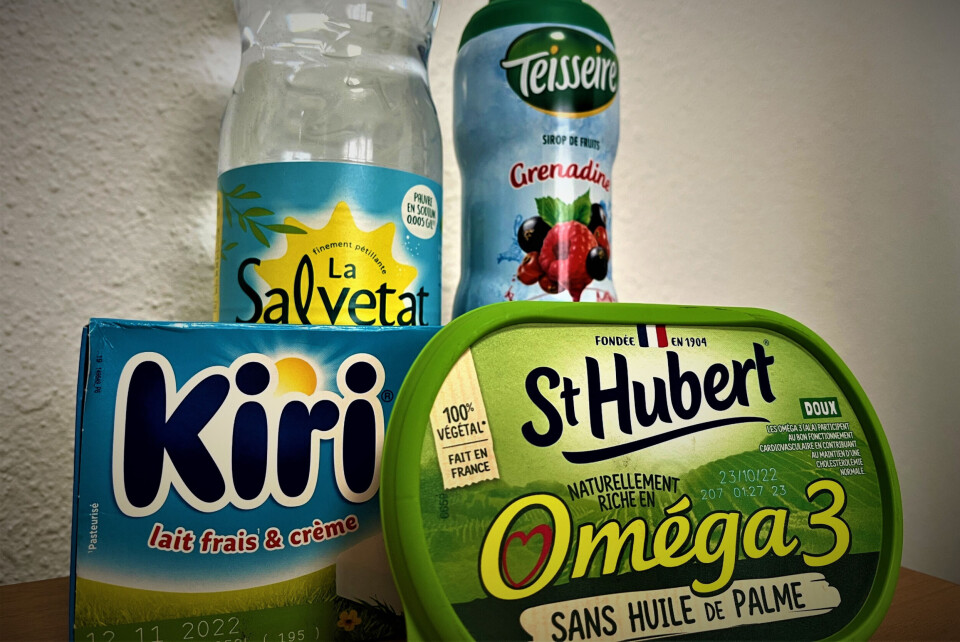-
Enedis warns of rising fake energy sales calls across France
Fraudsters posing as Enedis or its partners are targeting households, prompting daily scam reports to the electricity network operator
-
‘No time to react’: mini-tornado damages homes in Gironde, west France
Violent weather rips off roofs and uproots trees. Around 300 properties impacted
-
Immigrants now make up 11.3% of France’s population, new figures show
2.6 million (33% of the immigrant population) had obtained citizenship
Petition launches against ‘shrinkflation’ in shops in France
Have you noticed the practice whereby a product shrinks in size but its price does not? Two independent experts explain why its particularly useful to retailers

‘Shrinkflation’ - the practice whereby a product shrinks in size but its price does not change - is legal in France and can be a useful tool for retailers, two independent experts told The Connexion after a report about it prompted controversy about its use.
They argue that it is especially useful for keeping shoppers’ satisfaction high while adapting the price of goods to a new forecasted market.
It comes after Foodwatch, a European advocacy group that focuses on protecting consumer rights, denounced the technique, saying it was being used by big retail stores to “hide inflation.”
French minister for small and medium-sized enterprises Olivia Grégoire said she has asked the DGCCRF, the French administration investigating frauds, to conduct an investigation into the practice, adding that “people’s wallets should not be played with.”
On ne joue pas avec le porte-feuille des Français.
— Olivia Gregoire (@oliviagregoire) September 2, 2022
J’ai demandé à la @dgccrf de mener immédiatement une série de contrôles afin de constater s’il y a des pratiques commerciales trompeuses. https://t.co/XoHHaIrj1L
Foodwatch listed six French products as examples of shrinkflation be used, including Kiri (cheese), Teisseire (syrup), Saint Hubert Omega 3 (butter), Pyrénées (chocolate bar), Saint-Louis (sugar) and Salvetat (sparkling water).
Teisseire and Pyrénéens’ goods were said to have shrunk by 20% - from 30 to 24 portions for Pyrénées chocolates and from 75 to 60 centilitres for Teisseire - while prices per kilo have gone up 30% and 37%.
The advocacy group denounced a lack of transparency from several French retailers in an economic technique that is “misleading on both sizes and prices for regular consumers.
It has launched a petition to stop the practice that more than 8,000 people signed in the first two days.
‘Shrinkflation’ is not illegal in France - something Foodwatch does not deny - and has accelerated over the last decades as it is used in response to economic tensions.
Oliviers Dauvers, a French journalist who has reported on the retail industry for 32 years, questioned the timing of Foodwatch’s press release saying that shrinkflation has been around for several years and has not only been provoked by the war in Ukraine.
“This is not a short-term tactic,” said Mr Dauvers, adding that a company cannot modify its packaging and production chain in six months.
He said that he thinks Foodwatch released its report now with the cost of living crisis in the news to draw more attention to their organisation.
Foodwatch told The Connexion it released its statement following warnings from consumers, adding that it was aware of the phenomenon but needed time to investigate.
Michel Ruimy, an economist and professor at Sciences Po, said he thought that shops used shrinkflation “like chlorophyll”, to ease the pain of rising prices.
Retail stores have been using shrinkflation to keep prices stable since price is the factor taken most into consideration by consumers, said Mr Ruimy, adding that the technique is especially common in times of high inflation and tensions on spending power.
He said that the practice is not necessarily problematic as consumers still have the freedom to choose to buy the products or not.
Foodwatch argued that despite this freedom to choose, people may not know that the products they are buying are smaller or have less content.
The Connexion has not yet been able to speak to the brands cited by Foodwatch in its press release.
Read more: Cost of living: French supermarket freezes price of 100 products
An anticipation of the market
Mr Dauvers took Tropicana, a fruit juice brand owned by Tropicana Products, as an example of the forecasted shrinkflation technique, saying the company used the technique over four years ago.
He also said that retail stores sign one to two-years deals on products.
“The price listed is an anticipation of the market,” said Mr Ruimy, adding that price was submitted to “random factors” such as the war in Ukraine pushing cereals and grain prices up.
Both Mrs Dauvers and Ruimy said, however, that consumers’ behaviour will eventually determine how the market will react.
Mr Ruimy suggested that the new era of cutting back on overconsumption required by the government can turn consumers away from certain products.
He specifically mentioned the case of off-season fruits and vegetables with expensive prices because of shipping from the Americas or other continents across the world that could eventually be pulled from shelves due to lack of demand.
Related stories
Supermarkets in France offer anti-waste measures to help shoppers save
E.Leclerc France extends anti-inflation price freeze on key items
Indifference from French shop assistants is not the same as rudeness
























